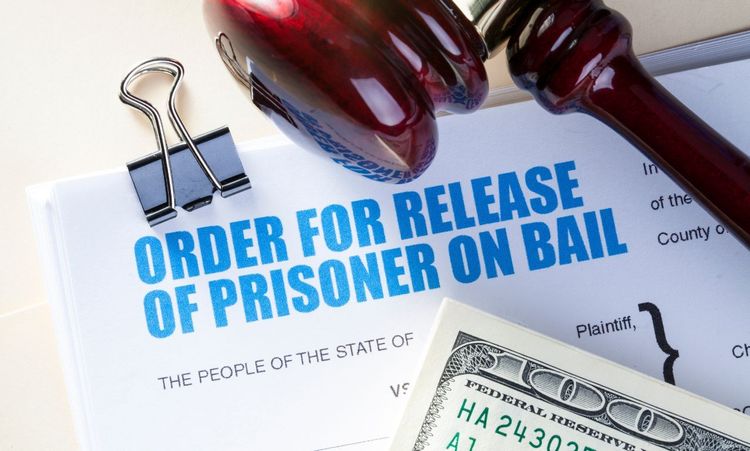Family situations rarely remain static after divorce or separation. Children grow, careers shift, and life circumstances evolve constantly. These changes often necessitate adjustments to existing custody arrangements. Courts don't take modification requests lightly, though. Judges prioritize stability and consistency in children's lives above all else. You might wonder what compelling reasons could persuade a court to alter an established custody agreement. Throughout this article, we'll explore the common scenarios that might convince a judge to modify custody terms. Every state has different laws regarding custody modifications. The information provided here serves as a general guide rather than specific legal advice. Let's examine what might prompt a judge to reconsider custody arrangements.
Change in Living Situation
Inadequate Housing Conditions
A significant shift in living conditions can trigger custody agreement modifications. Perhaps a parent moved into a smaller apartment without enough space for children. Maybe the neighborhood has become unsafe due to increasing crime rates. Housing without basic necessities like running water or heat raises immediate concerns. Courts examine whether children have private sleeping areas appropriate for their age and gender. Judges consider if the current living situation meets the child's basic needs for safety and comfort.
Financial Instability
Money troubles that impact housing stability often prompt custody reviews. A parent facing eviction creates an unstable environment for children. Inability to provide adequate food or clothing warrants court attention. Frequent moves disrupt children's education and social connections significantly. Judges weigh financial struggles against the parent's efforts to improve their situation. They recognize temporary hardships differ from chronic financial irresponsibility. Courts aim to place children in homes with reasonable financial stability.
Altered Employment Status
Job Loss or Significant Schedule Changes
Employment shifts can dramatically affect parenting capabilities. A parent's sudden unemployment might mean they can care for children more frequently. Conversely, taking a job with extensive travel limits available parenting time. Overnight shifts or weekend work schedules conflict with traditional visitation arrangements. Some parents face mandatory relocations that make current arrangements impossible. Courts evaluate whether employment changes represent temporary or permanent situations. They consider how schedule adjustments would benefit the child overall.
Remote Work Opportunities
The rise of remote work has created new custody considerations. Working from home might allow a parent to increase their custody time. Flexible schedules can accommodate school pickups and after-school activities more easily. Some parents have moved closer to their children thanks to remote work options. Courts view positively arrangements that allow for more quality parenting time. Judges consider if remote work situations appear stable for the foreseeable future. They evaluate whether such arrangements truly serve the child's best interests. Relocation
Moving Within the Same Area
Even local moves can trigger custody agreement reviews. Changing school districts impacts children's education and social connections significantly. Moving just 30 minutes away complicates weekday visits and activity participation. Judges weigh the reason for the move against potential disruptions. They consider whether the move provides better opportunities or living conditions. Courts examine if parents made relocation decisions thoughtfully or impulsively.
Long-Distance Relocations
Moving to another state or country creates obvious custody challenges. Current arrangements become logistically impossible across significant distances. Travel costs and time constraints make frequent visitation unfeasible. Different time zones complicate phone calls and virtual visitation significantly. Courts carefully scrutinize reasons behind long-distance moves. Job opportunities, family support, or educational advantages might justify relocation. Judges balance the moving parent's legitimate needs against maintaining both parental relationships.
Further Family Changes
Remarriage and Blended Families
New marriages often prompt custody reconsiderations. Step-siblings or step-parents might significantly alter family dynamics. A new spouse could provide additional stability and support. However, personality conflicts might create tension within blended households. Courts assess how children have adjusted to new family members. They consider whether the new environment promotes healthy development. Judges sometimes interview children to understand their comfort in blended family settings.
Birth of Additional Children
New siblings can influence custody arrangements in surprising ways. Half-siblings might benefit from spending time together regularly. The demands of caring for a newborn could temporarily affect parenting capacity. Courts value maintaining relationships between all siblings when possible. Judges consider age gaps and established bonds between children. They examine whether current arrangements foster healthy sibling relationships.
Death of a Parent or Guardian
Sole Custody Determinations
When a custodial parent dies, courts must make difficult decisions. The surviving parent doesn't automatically receive custody in all cases. Grandparents or other relatives might have strong existing relationships. Some deceased parents express guardianship preferences in their wills. Courts investigate what arrangement serves the child's emotional needs best. They consider the strength of existing relationships with potential guardians. Judges prioritize creating stability during an inherently traumatic transition.
Guardianship Transitions
Death requires thoughtful transfer of legal authority and physical custody. Children need time to grieve while adjusting to new living arrangements. Prior relationships with the new guardian influence transition success. Courts may order counseling to help children process their loss. They establish visitation with extended family from the deceased parent's side. Judges monitor these transitions closely to ensure children receive proper support.
Evolving Needs of the Child
Academic Requirements
Children's educational needs change significantly as they mature. Learning disabilities might require specialized schools or programs. Gifted students might benefit from advanced educational opportunities. High school students might need particular courses for college preparation. Courts consider whether current arrangements support academic success. They evaluate if one parent lives near better-suited schools. Judges weigh educational benefits against disruption of established routines.
Medical Conditions
Health challenges can necessitate custody modifications quickly. Chronic conditions might require proximity to specialized treatment facilities. One parent might better accommodate medical appointments and therapies. Some health issues require consistent daily management and monitoring. Courts consider which parent demonstrates better understanding of medical needs. They evaluate each home's ability to accommodate any physical limitations. Judges prioritize arrangements that best manage children's health requirements.
Child's Preference
Age Considerations
Courts give increasing weight to children's preferences as they mature. Most states don't set specific ages when children's opinions become decisive. However, teenagers' reasonable preferences receive serious consideration. Younger children's stated preferences undergo more scrutiny for outside influence. Judges evaluate whether children understand the implications of their preferences. They consider if children express consistent preferences over time.
Reasoning Behind Preferences
The "why" behind a child's preference matters enormously. Preferring one home because of lax rules raises red flags. Wanting to live where friends are closer reflects normal social development. Courts look for substantive reasons beyond material advantages. Judges distinguish between typical parent-child conflicts and serious concerns. They evaluate whether preferences stem from parental manipulation. A child's well-reasoned preference often influences custody decisions significantly.
Custody Agreement Violations
Parenting Time Interference
Consistently blocking court-ordered visitation warrants serious attention. Repeatedly canceling visits diminishes the child's relationship with the other parent. Making children unavailable for scheduled calls undermines communication rights. Some parents deliberately schedule competing activities during visitation times. Courts view such interference as harmful to children's emotional well-being. Judges might modify custody to ensure meaningful relationships with both parents. They sometimes transfer primary custody to the parent who supports both relationships.
Decision-Making Violations
Joint legal custody requires consultation on important decisions. Excluding a parent from medical or educational decisions violates most agreements. Enrolling children in activities without required consent creates unnecessary conflict. Changing schools or doctors unilaterally undermines co-parenting foundations. Courts take these violations seriously when properly documented. Judges might alter decision-making authority based on this behavior. They prioritize arrangements where both parents can meaningfully participate.
Abuse or Neglect
Physical Safety Concerns
Evidence of abuse represents the clearest case for immediate custody modification. Unexplained injuries or consistent bruising warrant immediate investigation. Exposure to domestic violence traumatizes children even as bystanders. Courts act swiftly when credible abuse allegations arise. Temporary orders often restrict contact until investigations conclude. Judges require substantial evidence, not merely accusations, before permanent modifications.
Substance Abuse Issues
Parental substance abuse creates unpredictable and dangerous environments. Driving under the influence with children present indicates serious judgment problems. Being intoxicated while responsible for childcare constitutes neglect. Evidence might include police reports, failed drug tests, or DUI convictions. Courts often require treatment and sobriety monitoring before restoring custody rights. Judges balance rehabilitation possibilities against children's immediate safety needs. They frequently implement step-up plans as parents demonstrate sustained sobriety.
Conclusion
Custody modifications require substantial changes in circumstances since the original order. Courts won't alter arrangements based on minor disagreements or temporary situations. Judges consider the totality of circumstances rather than isolated incidents. Documentation strengthens any request for custody modifications significantly. Parents should attempt reasonable communication before seeking court intervention. The child's best interests remain the court's primary consideration throughout this process. Consulting a family law attorney helps parents understand their specific state's requirements. With proper guidance, parents can navigate custody modifications while minimizing disruption to their children.




